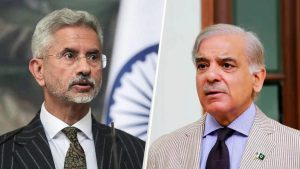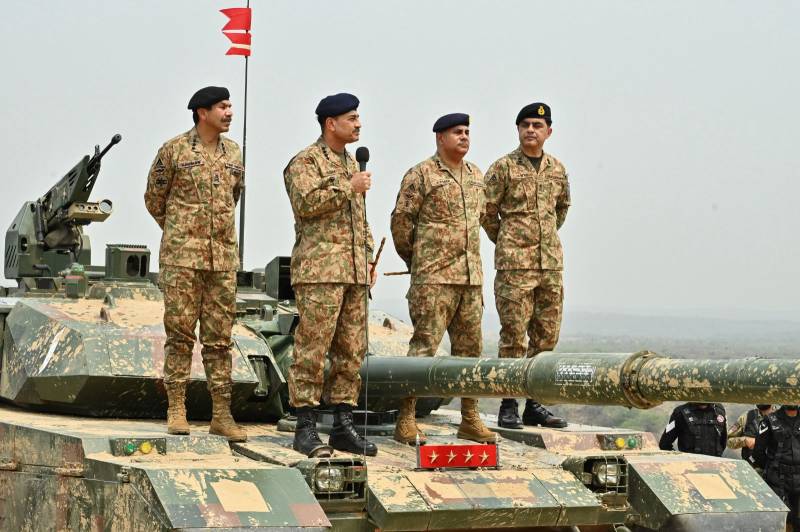Army leaders on Friday sent a strong and unmistakable message to India, vowing a “decisive” response from Pakistan if the neighboring country dared to initiate any war-like actions.
Army chief General Syed Asim Munir called for a special meeting of Corps Commanders at the General Headquarters in Rawalpindi, all against the backdrop of rising tensions with India.
New Delhi has threatened to carry out cross-border strikes, accusing Pakistan of being behind the April 22 attack that tragically claimed the lives of 26 tourists in the Pahalgam region of Indian-administered Jammu and Kashmir.
Pakistan has firmly denied any involvement and has expressed its willingness to take part in any “neutral, transparent, and credible” investigation. China and several other nations have supported Pakistan’s call, while the United States, contrary to what India might have hoped, has taken a more balanced stance.
On Wednesday, US Secretary of State Marco Rubio reached out to both Prime Minister Shehbaz Sharif and Indian External Affairs Minister S J Shankar, urging them to exercise restraint.

A statement from the military’s media wing revealed that the senior officials conducted a thorough review of the current geo-strategic landscape, focusing particularly on the ongoing Pakistan-India standoff and the wider regional security situation.
The meeting reaffirmed the unwavering commitment of the armed forces to protect the country’s sovereignty and territorial integrity against any form of aggression or misadventure.
The Chief of Army Staff praised the unwavering professionalism, strong morale, and operational readiness of the armed forces, emphasizing their unity with the people of Pakistan in defending the homeland at all costs. He highlighted the crucial need for increased vigilance and proactive preparedness on all fronts.
The forum expressed serious concern over the rising Indian atrocities in the Indian-Illegally Occupied Jammu and Kashmir (IIOJK), especially following the recent Pahalgam incident, along with the ongoing targeting of innocent civilians along the Line of Control (LoC) by Indian occupation forces. It was reiterated that such cruel and unprovoked actions only serve to heighten regional tensions and will be met with a firm and appropriate response.
The forum also took note of India’s ongoing pattern of exploiting crises to further its political and military goals. They have been following a predictable playbook—using internal governance failures as a way to shift blame externally.
These incidents often align with India’s unilateral attempts to change the status quo, as seen in 2019 when India took advantage of the Pulwama incident to unilaterally alter the situation in Indian Illegally Occupied Jammu & Kashmir by revoking Article 370.
“In this latest case, the Pahalgam incident seems to be part of a calculated strategy to distract Pakistan from the western front and its ongoing national efforts for economic recovery—two areas where Pakistan is making significant and sustainable progress. Such diversionary tactics aimed at giving Indian terror proxies some operational leeway will never succeed,” stated the Inter-Services Public Relations (ISPR).
While reaffirming Pakistan’s unwavering commitment to peace, stability, and prosperity, the forum made it clear that any attempt to impose war will be met with a strong and decisive response, and the aspirations of the people of Pakistan will be respected at all costs, Insha’Allah.
In the same spirit, the forum expressed serious concern that India is now taking advantage of the Pahalgam incident to undermine the long-standing Indus Waters Treaty, trying to seize Pakistan’s rightful and inalienable water rights. This represents a dangerous move to weaponize water, jeopardizing the livelihoods of over 240 million Pakistanis and increasing strategic instability in South Asia.
The forum also raised deep alarm over credible evidence pointing to direct Indian military and intelligence involvement in orchestrating terrorist activities within Pakistan. These state-sponsored actions blatantly violate international norms and are simply unacceptable.
The forum reiterated that Pakistan’s journey toward peace and development will not be swayed by terrorism, coercion, or aggression—whether directly or through proxies. Any deliberate attempts by the Indian government to destabilize will be met with determination and clarity.
In closing, the COAS expressed complete confidence in the operational readiness, deterrence posture, and morale of all formations and strategic forces to defend the nation against any threat.
For the latest updates and insights on new developments, visit the NEWSON
Q1.What did the Pakistan Army say about India’s recent threats?
The Pakistan Army, led by General Syed Asim Munir, issued a strong and decisive warning to India, stating that any aggression will be met with a firm response to protect Pakistan’s sovereignty and territorial integrity.
Q2.Why did General Asim Munir call a Corps Commanders meeting?
The Army Chief called a high-level meeting at GHQ Rawalpindi to assess the geo-strategic situation, particularly in light of rising tensions with India and the Pahalgam incident.
Q3.What is Pakistan’s stance on the Pahalgam attack?
Pakistan has categorically denied involvement in the April 22 Pahalgam attack and has called for a “neutral, transparent, and credible” international investigation into the incident.
Q4.How has the international community responded?
Countries like China have backed Pakistan’s call for investigation, while the United States has urged both India and Pakistan to exercise restraint, taking a more balanced diplomatic approach.
Q5.What concerns has the Pakistan Army raised about Kashmir?
The Army expressed serious concern over human rights violations in Indian-Illegally Occupied Jammu & Kashmir (IIOJK), including recent civilian casualties and India’s attempts to change the region’s legal status.
Q6.Is India trying to weaponize water resources?
Yes. The forum warned that India is leveraging the Pahalgam incident to undermine the Indus Waters Treaty, posing a direct threat to Pakistan’s water security and the livelihoods of millions.


